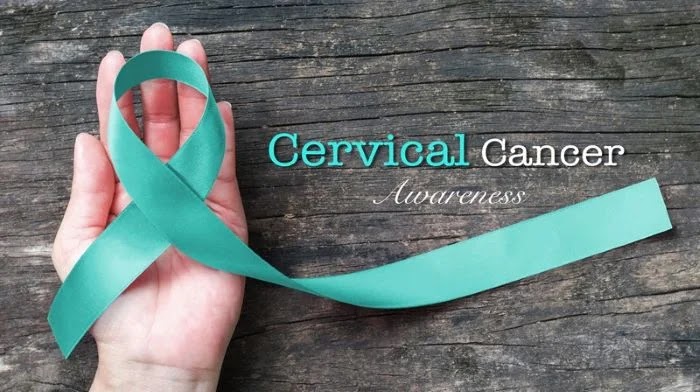Your Guide to Starting a Career as a Freelance Photographer
Embarking on the Path: Your Guide to Starting a Career as a Freelance Photographer
Written by: Muhammad Nadeem Khan
In today's digital age, becoming a freelance photographer offers a promising career path for individuals passionate about capturing moments and telling stories through imagery. With the rise of online platforms and the increasing demand for visual content, freelancing in photography has become more accessible than ever before. As a freelancer, I believe that there is a hidden potential in creativity that exists in every born child, which develops time by time as a child grows, it is explored and improved by interest. If we take a look at our childhood, we were artists at that time and we had drawn drawings on the walls of our house. We usually take our photos as selfies on our smartphones, or family photos on a digital camera as well as old-fashioned cameras. Now it is time to replenish this skill, which we do not consider in our daily lives.
 |
| (Stock Photo: Digital Photography) |
Introduction to Freelance Photography
Freelance photography involves working independently, offering photography services to clients on a project basis rather than being employed by a single company or agency. As a freelance photographer, you have the freedom to choose your projects, set your rates, and manage your schedule according to your preferences.
Advantages of Being a Freelance Photographer
Flexibility in Schedule
One of the key advantages of freelancing in photography is the flexibility it offers in terms of schedule. Unlike traditional 9-to-5 jobs, freelance photographers can work at their own pace and choose when to take on assignments, allowing for a better work-life balance.
Creative Freedom
As a freelance photographer, you have the creative freedom to pursue projects that align with your interests and vision. Whether it's capturing landscapes, portraits, events, or commercial work, freelancing allows you to express yourself artistically and explore different genres of photography.
Opportunity for Higher Earnings
Freelance photographers have the potential to earn higher incomes compared to those working for a single employer. By building a strong portfolio, establishing a solid client base, and delivering exceptional results, freelancers can command higher rates for their services and take on multiple projects simultaneously.
Steps to Become a Freelance Photographer
Develop Photography Skills
Before embarking on a freelance photography career, it's essential to hone your photography skills and master the technical aspects of camera operation, lighting, composition, and post-processing techniques.
Build a Portfolio
A compelling portfolio is essential for showcasing your work to potential clients and demonstrating your skills and style as a photographer. Focus on curating a diverse selection of high-quality images that highlight your versatility and creativity.
Establish an Online Presence
In today's digital world, having a strong online presence is crucial for attracting clients and promoting your services as a freelance photographer. Create a professional website or portfolio to showcase your work, and leverage social media platforms like Instagram and LinkedIn to connect with potential clients and collaborators.
Network with Potential Clients
Networking is key to finding freelance photography opportunities. Attend industry events, join online photography communities, and reach out to potential clients directly to build relationships and expand your professional network.
Set Pricing and Contracts
When starting out as a freelance photographer, determining your pricing structure and creating clear contracts are essential for managing client expectations and protecting your business interests. Consider factors such as your level of experience, the scope of the project, and industry standards when setting your rates.
 |
| (Stock Photo: Amateur / Professional Photographer) |
Finding Freelance Photography Jobs
Online Job Platforms
Online job platforms like Upwork, Freelancer, and Fiverr are valuable resources for finding freelance photography gigs. Create a compelling profile, showcase your portfolio, and actively bid on relevant projects to land new clients and build your reputation.
Social Media Networking
Social media platforms offer a powerful tool for networking and marketing your freelance photography services. Share your work regularly, engage with your audience, and leverage hashtags and geotags to reach a wider audience and attract potential clients.
Local Networking Events
Networking events, workshops, and photography meetups are excellent opportunities to connect with fellow photographers, industry professionals, and potential clients in your local area. Attend these events regularly to build relationships, exchange ideas, and discover new opportunities for collaboration.
Tips for Success in Freelance Photography
Maintain High-Quality Work
Consistently delivering high-quality work is essential for building a successful freelance photography career. Pay attention to detail, strive for excellence in every project, and continuously seek feedback to improve your skills and refine your craft.
Continuously Learn and Improve
The field of photography is constantly evolving, with new techniques, technologies, and trends emerging regularly. Stay updated on industry developments, experiment with different styles and techniques, and invest in ongoing education and training to stay ahead of the curve.
Provide Excellent Customer Service
Building strong relationships with clients is crucial for long-term success as a freelance photographer. Communicate effectively, listen to your client's needs and preferences, and go above and beyond to exceed their expectations, ensuring a positive experience and fostering repeat business and referrals.
Becoming a freelance photographer offers a rewarding opportunity to turn your passion for photography into a fulfilling career. By developing your skills, building a strong portfolio, networking with potential clients, and delivering exceptional work, you can create a successful and sustainable business as a freelance photographer.
Unique FAQs
Q: How much can freelance photographers earn?
A: Freelance photographers' earnings vary depending on factors such as their level of experience, location, the type of projects they undertake, and their marketing and networking efforts. However, experienced freelance photographers have the potential to earn significant incomes, especially for specialized or high-demand niches.
Q: Do I need formal education to become a freelance photographer?
A: While formal education in photography can be beneficial for developing technical skills and understanding the principles of photography, it's not necessarily a requirement to become a successful freelance photographer. Many successful photographers are self-taught or have pursued alternative paths to learning, such as workshops, online courses, and mentorship programs.
Q: How do I handle pricing negotiations with clients as a freelance photographer?
A: Pricing negotiations with clients can be challenging, but it's essential to establish clear pricing structures and communicate the value of your services effectively. Research industry standards, consider factors such as your level of expertise and the scope of the project, and be prepared to justify your rates based on the quality of your work and the value you provide to clients.
Q: What are some common challenges faced by freelance photographers?
A: Some common challenges faced by freelance photographers include finding a steady stream of clients, managing finances and administrative tasks, dealing with competition in the market, and balancing creative pursuits with business responsibilities. However, with determination, resilience, and strategic planning, these challenges can be overcome, leading to a successful and fulfilling career in freelance photography.
Q: How can I stand out as a freelance photographer in a competitive market?
A: To stand out in a competitive market, focus on developing a unique style and aesthetic that sets you apart from others, consistently delivering high-quality work, providing exceptional customer service, and building strong relationships with clients and collaborators. Additionally, leverage online platforms and social media to showcase your work, engage with your audience, and demonstrate your expertise and passion for photography



Comments
Post a Comment